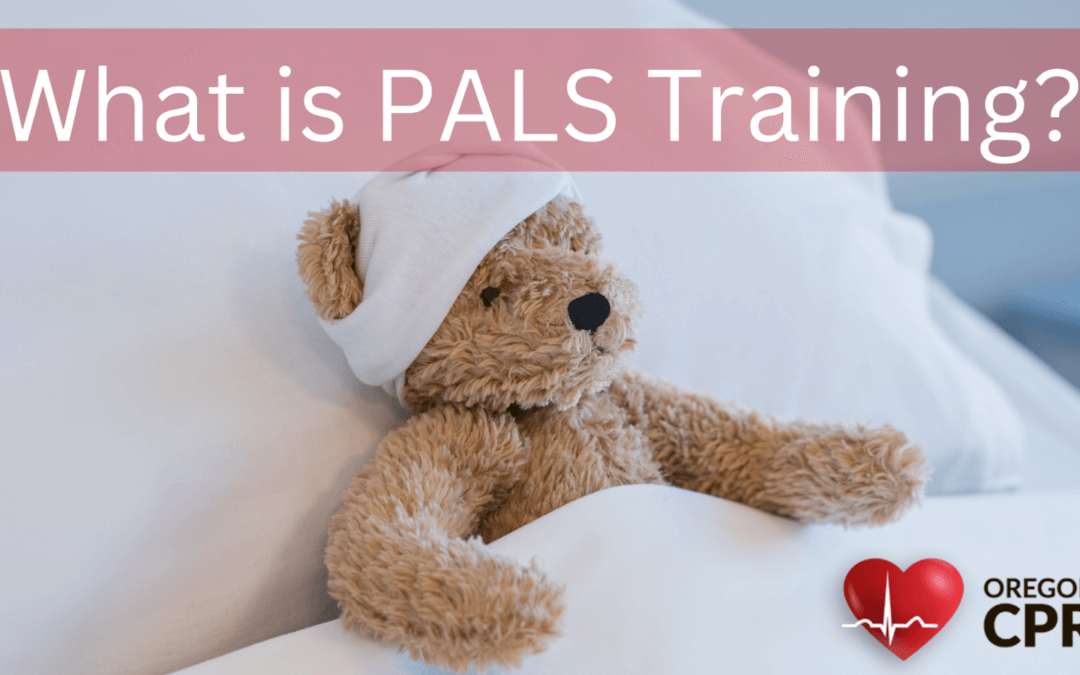Oregon CPR has teamed up with the Cascade Training Center to provide our local healthcare professionals with Pediatric Advanced Life Support (PALS) training. This course is designed to help medical providers (both emergent and non-emergent) develop the skills and knowledge needed to evaluate and manage pediatric cardiovascular emergencies. This course provides students with a variety of learning opportunities with both hands on skills training, lectures, and a American Heart Association textbook to amplify the amount of information absorbed and learned during this training.
The American Heart Association Pediatric Advanced Life Support course is based on up to date scientific evidence, which is included in the current AHA Guidelines for CPR and ECC. The goal of PALS certification courses, like the one we host at Oregon CPR, is to provide emergency and pediatric health care providers with the tools necessary to manage a critically ill child or infant with efficiency, improving the child’s chance of surviving and thriving after an emergent situation. In this PALS course students are taught how to recognize and treat a child or baby at risk of:
- caridopulmary arrest (VF/VT, PEA, Asystole)
- Respiratory arrest
- Shock
- Pre-arrest emergencies such as bardycardua, stable tachycardia, and unstable tachycardia
Students in our Pediatric Advanced Life Support course will learn skills including how to to take a systemic approach to pediatric assessment, effective respiratory management, defiberlation and sychronized cardioversion, intraosseous and fluid bolus administration, and efficient resuscitation team dynamics for infants and children.
Who Can Benefit Most From A PALS Certication
Our Pediatric Advanced Life Support course is best suited for medical professionals and health care providers that are already proficient in child and infant Basic Life Support and CPR skills. Based on the current American Heart Associations guidelines, a BLS/CPR certification is not required to take a PALS course. Certification in BLS is not included in this PALS course. However, knowledge of infant and child BLS is encouraged. Healthcare professionals that will benefit from a PALS course are:
- Pediatricians
- Emergency and family physicians
- Physician Assistants
- Nurse practitioners
- Nurses
- Paramedics
- Respiratory therapists
- And any other health care providers that may initiate or direct pediatric advanced life support during an emergency.
If you are not confident in your basic life support and CPR skills and knowledge we encourage you to take a BLS and/or CPR course prior to joining this Pediatric Advanced Life Support course.
Why You Should Choose Oregon CPR As Your PALS Course Provider
Our team at Oregon CPR goes above and beyond to provide our students with the best training and courses. We recently purchased high-quality equipment, which includes our ECG Kid and Baby. These two pieces of equipment are built to provide more realistic and diverse PALS training. These top of the line training manikins allow for our trainers to provide real life experiences and give students the opportunity to practice complex and advanced skills like inserting an IV and chest tube, and can provide a variety of cardiovascular emergent scenarios. Our training facility in Sprigfield, OR has a accommodations that are built to make your experience taking courses with us comfortable and enjoyable. We offer all our students snacks, coffee and tea during their training courses. Built in features like our large 82” television and memory foam supported carpeting makes it easy for our students to view course material and practice skills. Visit https://www.oregoncprtraining.com/ to learn more about our courses including PALS, ACLS, BLS, CPR, and more!
